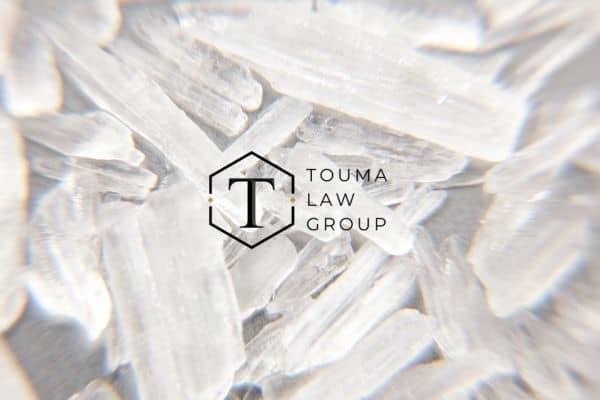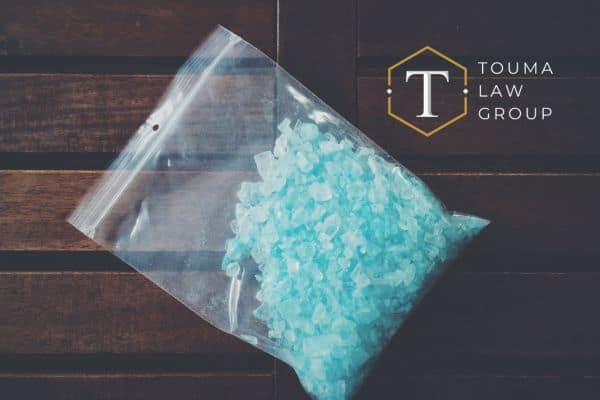Most people are not aware of what the different meth charges are in SC. In several parts of South Carolina, crystal meth is most often cooked or prepared in residential homes using household ingredients and it is known as a synthetic drug. The drug is chemically similar to drugs that are used in the treatment of deficit disorders.
These drugs are known to be part of the amphetamine family. However, even if they belong to the same family is that the prescribed amphetamines can safely be used when following a doctor’s directions and they can be legally used if the person using the drug has a valid prescription. On the other hand, methamphetamine as a drug is illegal under every circumstance.
The South Carolina laws have criminalized the sale and use and as well the possession of controlled substances. It is essential to understand the consequences you could be facing depending on the charge and how a Columbia criminal defense attorney can help you.
Simple Possession of Meth
Meth use can cause severe damage to the body including brain damage, heart disease, liver problems, kidney failure, and even death. Meth users may experience hallucinations, paranoia, depression, anxiety, insomnia, weight loss, and increased aggression. Meth can also lead to criminal activity, violence, and suicide.
Simple possession of methamphetamine is a misdemeanor crime in South Carolina. If you are charged with simple possession of methamphetamine, you could face jail time, fines, probation, community service, substance abuse treatment, and/or ignition interlock device requirements.
If you are convicted of simple possession of methamphetamine, the court may impose any combination of fines, jail time, probation, community service hours, ignition interlock device requirements, and/or substance abuse treatment.
You may have been arrested for simple possession of methamphetamine. You should not speak to anyone about what happened unless you have legal representation. Your attorney can advise you to plead guilty to avoid jail time depending on the circumstances revolving around your case. If you do not want to enter a plea agreement, you may choose to go to trial. At trial, your lawyer will try to prove that you did not intend to possess methamphetamine. In addition, your lawyer may argue that the amount of methamphetamine was small enough to fit inside a container.
Possession With Intent to Distribute or Manufacturing
Possession of meth with intent as a first-time offense is a misdemeanor crime in South Carolina. The offense carries with it a fine of $5000 and a minimum sentence of three years in prison, and a maximum sentence of 20 years in prison. Meth charges are different compared to other drug possession charges. As a second offense or a subsequent offense Actual possession of meth graduates to a felony offense. Even as a first-time offense the charge can turn out to be a felony depending on the quantity of drugs in possession.

Manufacturing these types of drugs is a felony offense. You can be convicted of manufacturing meth, Possession with intent to manufacture the illegal substance as a felony offense in South Carolina. If you are charged with possession with intent to manufacture due to the additional charges you could face serious penalties including jail time or a severe jail sentence, fines, probation, community service, and drug treatment programs. A criminal charge that turns into a conviction can also affect your driver’s license and immigration status.
Trafficking Meth
The state of South Carolina has some of the strictest laws regarding meth possession and drug trafficking and drug manufacturing charges. Meth charges in South Caroline are considered felonies. Meth dealers may face up to 10 years in prison if convicted. Individuals using this type of drug may face up to five years in prison if they are caught using meth. If a person is caught selling meth or other illegal drugs in SC they could face up to 20 years in prison.
Disposal of Meth Production Waste
Methamphetamine production wastes are hazardous materials that require special handling and disposal procedures. Methamphetamine manufacturing involves the use of many chemicals, solvents, and precursors. These chemicals and solvents are toxic and dangerous if not properly disposed of. Methamphetamine manufacturing wastes have been known to contaminate groundwater, surface water, and air.
Methamphetamine manufacturing wastes may contain volatile organic compounds (VOC) including benzene, toluene, ethylbenzene, xylene, acetone, and methyl-tertiary-butyl ether (MTBE). Methamphetamine manufacturing wastes may also contain heavy metals such as lead, mercury, arsenic, cadmium, chromium, nickel, copper, zinc, barium, strontium, and antimony. Methamphetamine manufacturing wastes are classified as RCRA hazardous waste.
The following methamphetamine manufacturing wastes are regulated under the South Carolina Hazardous Waste Management Act (SCHWMA):
- All liquid wastes generated from the manufacture of methamphetamine;
- Solid wastes generated from the manufacture, storage, packaging, labeling, or transportation of methamphetamine;
- Solids generated from the treatment of wastewater containing methamphetamine;
- Any solid waste that contains methamphetamine residue;
- Any solid or liquid waste that contains methamphetamine precursor chemicals;
- Any solid and/or liquid waste that contains methamphetamine chemical precursors;
- Any solid, liquid, or gas that contains methamphetamine chemical precursors;
- Any liquid waste that contains methamphetamine solvent;
- Any solid wastes that contain methamphetamine solvent;
- All wastes that contain methamphetamine solvent.
In addition to the above-listed wastes, any solid waste that contains methamphetamine residues is subject to regulation under SCHWMA.
Exposing a Minor to Methamphetamine
Methamphetamine is a dangerous drug that can cause severe damage to the body if not treated properly. When exposed to methamphetamine, users experience extreme changes in their moods, behavior, and physical appearance. Methamphetamine use can lead to addiction, mental illness, and even death. If you suspect someone may have been using methamphetamines, call 911 immediately.

The first sign of meth use is often a change in an individual’s personality. Users become paranoid, aggressive, irritable, and develop unlawful conduct. Their speech becomes slurred and they may slur words together. They may also begin to show symptoms of psychosis, including hallucinations and delusions. Other signs of meth use include dilated pupils, increased heart rate, sweating, and tremors.
If you suspect someone is abusing meth, you should contact your local emergency room or urgent care clinic. Your doctor can prescribe medication to help treat any withdrawal symptoms. You may also want to consider counseling services to help you cope with the effects of meth abuse.
In South Carolina, exposing minors to methamphetamine as a drug charge is considered a felony. Penalties for this crime range from two years in prison to five years terms of imprisonment.
If you have committed a meth drug offense felony charge or misdemeanor you can contact a Columbia drug charge lawyer from TF law to help you with your case and help you get the best possible outcome.



